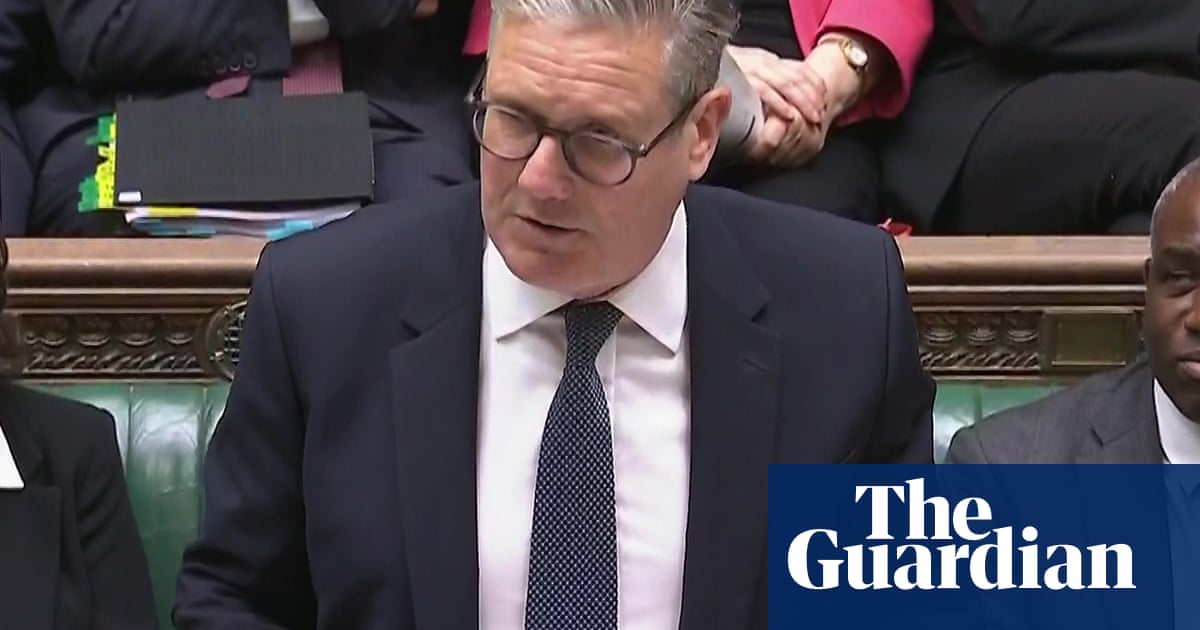Rachel Reeves has defended Keir Starmer’s decision tolaunch a national inquiryinto historic child sexual exploitation after months of pressure, saying that victims of grooming gangs have always been the government’s priority.
The chancellor said the prime minister was not concerned with “grandstanding” and had instead wanted to “assure himself” that a full public inquiry was necessary. She insisted that ministers had “never dismissed the concerns of victims”, even asLabourpreviously resisted calls for a wide-ranging investigation.
“I thinkKeir Starmer… has always been really focused, as he was when he was director of public prosecutions, on victims – not grandstanding,” Reeves told the BBC’s Sunday with Laura Kuenssberg. “But actually doing the practical things to ensure that something like this never happens again.”
Her remarks follow growing scrutiny over Starmer’s past scepticism about holding a national inquiry into the networks responsible for grooming and sexually exploiting hundreds of vulnerable girls in towns including Rotherham, Rochdale and Telford.
The prime minister has now said he will accept all of the recommendations published in an earlier review by Lady Casey, including the launch of a national inquiry. Nigel Farage, the Reform UK leader, described the move as a “welcome U-turn”, while the Tory leader, Kemi Badenoch, called on him to apologise for “six wasted months”.
Reeves confirmed the move, saying: “The prime minister pre-empted the publication of the report this week and said that he will accept the recommendations, including for a national inquiry, alongside those local inquiries that have already got going.”
The Labour government had been under mounting pressure to shift its position. Senior Tories, Farage, campaigners, some victims’ familiesand Elon Muskwere among those arguing that only a statutory inquiry could properly examine the extent of institutional failure across police forces, local councils and prosecutors.
The Labour MP Dan Carden, of the Blue Labour faction, became the first from his benches to break ranks and publiclycall for a national inquiryat the start of the year. He urged the prime minister to “use the full power of the state to deliver justice”.
In January, a Conservative attempt to force a vote on establishing a new national inquiry, via an amendment to the children’s wellbeing and schools bill, was rejected by MPs. At the time, Badenoch accused the Labour frontbench of risking the perception of a “cover-up” by refusing to back the move.
Starmer had argued that many reviews had already taken place, and a new national inquiry risked delaying the action demanded by victims.
Lady Casey had initially concluded a national inquiry was not required, but changed her position during the course of her rapid review commissioned by No 10.
Sign up toFirst Edition
Our morning email breaks down the key stories of the day, telling you what’s happening and why it matters
after newsletter promotion
Pressed on whether Labour had been wrong to oppose an inquiry when in opposition, Reeves said: “The Conservatives could have done another national inquiry, but they didn’t. We’ve been focused onimplementing the recommendations of the Alexis Jay reviewand other reviews, because there’s recommendations that have just been sitting on the table.
“But the prime minister wanted to assure himself he was doing everything that was necessary, which is why he asked Baroness Casey to do this rapid review.”
Asked whether ministers would apologise to campaigners who were previously labelled alarmist for demanding more action, Reeves refused to be drawn. “What is the most important thing here? It’s the victims,” she told Sky News. “It’s not people’s hurt feelings about how they’ve been spoken about. The most important thing here is the victims of these evil crimes.”
The inquiry is not expected to be similar to the independent inquiry into child sexual abuse (IICSA) conducted by Prof Alexis Jay. It is expected to have statutory powers, including giving the inquiry power to launch local investigations, with or without the consent of the respective local authorities.
